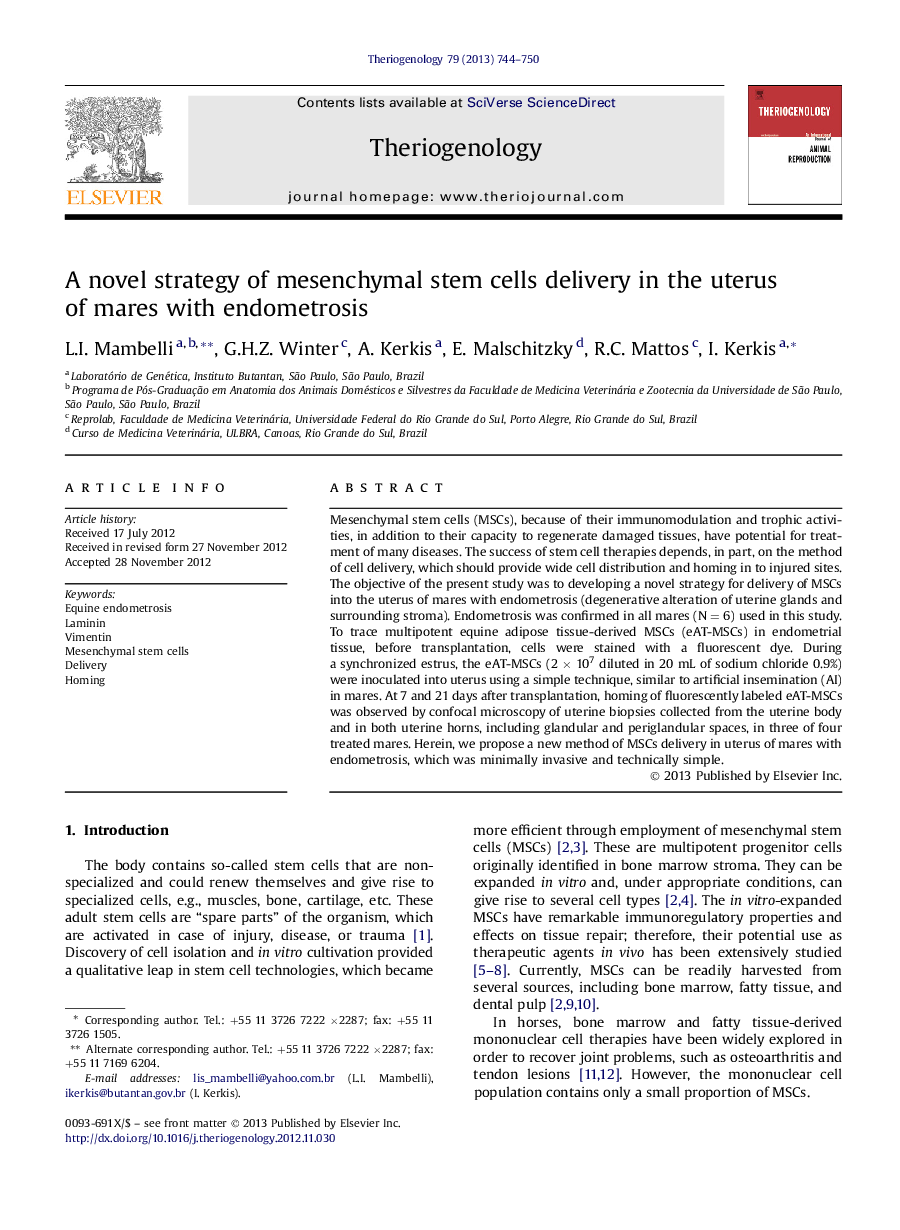| Article ID | Journal | Published Year | Pages | File Type |
|---|---|---|---|---|
| 10894465 | Theriogenology | 2013 | 7 Pages |
Abstract
Mesenchymal stem cells (MSCs), because of their immunomodulation and trophic activities, in addition to their capacity to regenerate damaged tissues, have potential for treatment of many diseases. The success of stem cell therapies depends, in part, on the method of cell delivery, which should provide wide cell distribution and homing in to injured sites. The objective of the present study was to developing a novel strategy for delivery of MSCs into the uterus of mares with endometrosis (degenerative alteration of uterine glands and surrounding stroma). Endometrosis was confirmed in all mares (N = 6) used in this study. To trace multipotent equine adipose tissue-derived MSCs (eAT-MSCs) in endometrial tissue, before transplantation, cells were stained with a fluorescent dye. During a synchronized estrus, the eAT-MSCs (2 Ã 107 diluted in 20 mL of sodium chloride 0.9%) were inoculated into uterus using a simple technique, similar to artificial insemination (AI) in mares. At 7 and 21 days after transplantation, homing of fluorescently labeled eAT-MSCs was observed by confocal microscopy of uterine biopsies collected from the uterine body and in both uterine horns, including glandular and periglandular spaces, in three of four treated mares. Herein, we propose a new method of MSCs delivery in uterus of mares with endometrosis, which was minimally invasive and technically simple.
Related Topics
Life Sciences
Agricultural and Biological Sciences
Animal Science and Zoology
Authors
L.I. Mambelli, G.H.Z. Winter, A. Kerkis, E. Malschitzky, R.C. Mattos, I. Kerkis,
